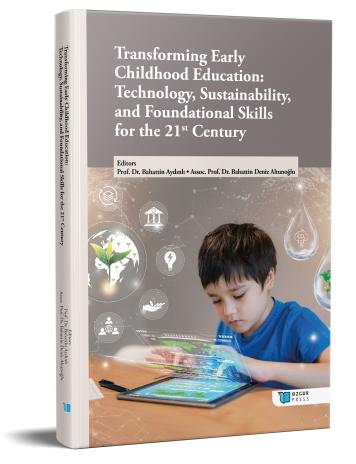
Sustainability and Citizen Science in Early Childhood Education in the 21st Century
Chapter from the book:
Aydınlı,
B.
&
Altunoğlu,
B.
D.
(eds.)
2024.
Transforming Early Childhood Education: Technology, Sustainability, and Foundational Skills for the 21st Century .
Synopsis
This study examines the individual and societal impacts of integrating sustainability and citizen science into early childhood education. While sustainability aims to preserve natural resources and promote social equity, citizen science encourages individuals’ active participation in scientific processes. Early childhood is a critical period for fostering environmental awareness and introducing scientific methods. In this context, sustainability and citizen science enable children to develop critical thinking, problem-solving, and social responsibility skills. The first section explores the theoretical foundations of sustainability and citizen science, detailing their environmental, economic, and social dimensions. The second section focuses on sustainability approaches applicable in early childhood, such as nature-based learning, recycling education, and technology-enhanced projects. The third section investigates the integration of citizen science into children’s learning processes and its contributions to societal awareness, highlighting examples of projects where children acquire skills like data collection and analysis. The fourth section emphasizes the effectiveness of educational methods, including project-based learning, game-based learning, and storytelling, in fostering these concepts. The final section presents recommendations for expanding the role of sustainability and citizen science in education. Key suggestions include restructuring curricula, strengthening teacher training, enhancing family involvement, and integrating technology. The study concludes that instilling these concepts at an early age significantly contributes to individual development and societal sustainability.

